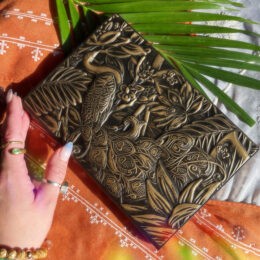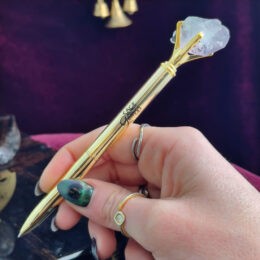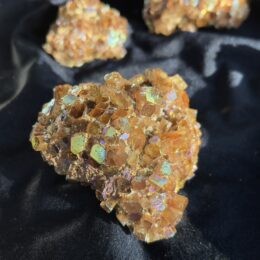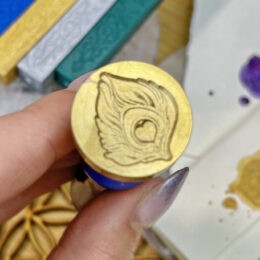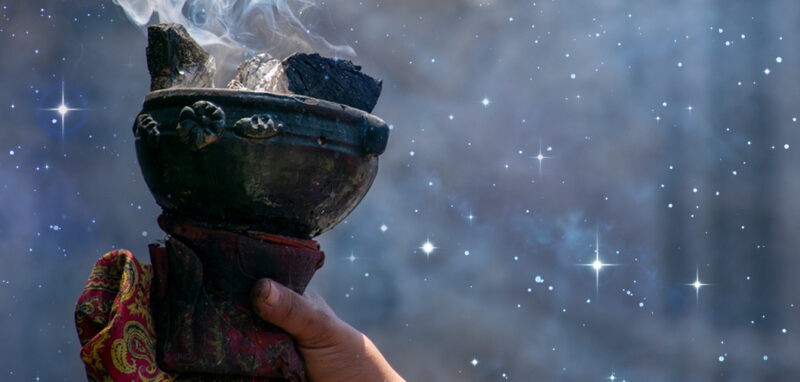Quartz Guide: Properties and Meaning
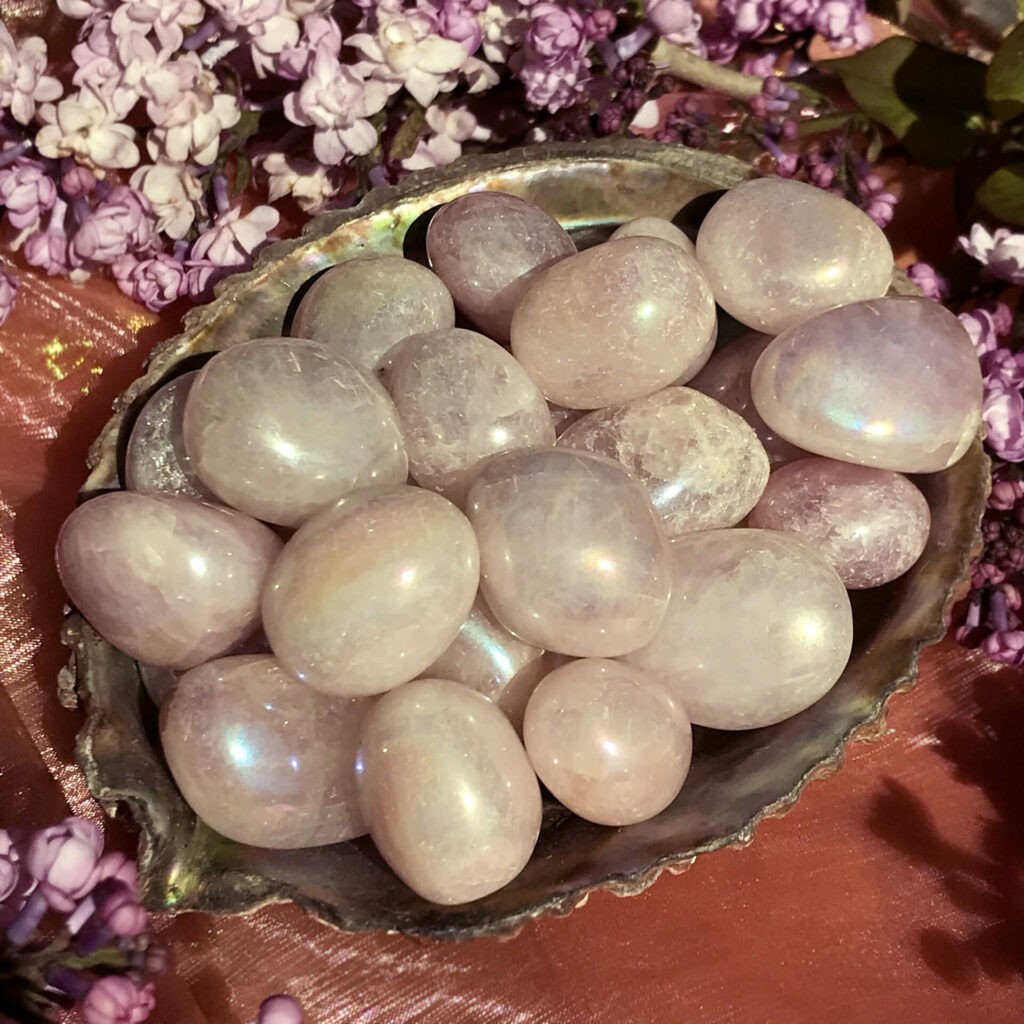
Quartz Properties
Color: VariousMohs Hardness: 7Chakra: Soul StarCrystal Structure:TrigonalLocation: Global
About Quartz
Quartz is a versatile stone that is associated with the Soul Star chakra, which is located above the crown chakra and connects us to the divine. This chakra serves as the seat of the soul and is associated with spiritual awakening, enlightenment, and higher consciousness. Quartz activates and balances this chakra, helping us access our higher self and connect with the divine. The color of quartz varies depending on the type and form, ranging from clear to smoky to rose-colored. Regardless of its color, quartz serves as a powerful tool for spiritual growth and healing.
The history of Quartz
Quartz has a rich history that dates back thousands of years. It has been used by various ancient civilizations for its spiritual and healing properties. In ancient Egypt, quartz was considered a sacred stone and used in the creation of jewelry, amulets, and talismans. It was believed to possess protective and purifying qualities. The ancient Greeks and Romans also valued quartz for its metaphysical properties and believed it enhanced mental clarity and spiritual connection. Throughout history, quartz has been revered by different cultures for its ability to amplify energy, promote balance, and facilitate spiritual growth. Today, quartz continues to be highly regarded as a gemstone that supports individuals on their spiritual journey.
What are Quartz healing properties?
Quartz has various healing properties. It activates and balances the Soul Star chakra, leading to spiritual awakening, enlightenment, and higher consciousness. Quartz is also a powerful tool for spiritual growth and healing.
What are Quartz Metaphysical / Spiritual Properties?
Quartz is associated with the Soul Star chakra, located above the crown chakra, and connects us to the divine. It is considered the seat of the soul and is associated with spiritual awakening, enlightenment, and higher consciousness. Quartz activates and balances this chakra, helping us access our higher self and connect with the divine. Regardless of its color, quartz is a versatile stone for spiritual growth and healing.
Quartz FAQ
What is Quartz used for?
Quartz is a versatile gemstone used for various purposes. It is commonly used in jewelry, such as necklaces, bracelets, and rings, due to its beautiful appearance and durability. Quartz is also used in the production of glass and ceramics, as it has a high melting point and can withstand high temperatures. Additionally, Quartz is used in electronics and technology, as it has piezoelectric properties that allow it to convert mechanical energy into electrical energy.
What does Quartz do?
Quartz is known for its amplifying properties, both physically and spiritually. Physically, Quartz enhances the energy of other gemstones and crystals, making it a popular choice for crystal grids and healing practices. Spiritually, Quartz amplifies one’s intentions and energy, making it a powerful tool for manifestation and spiritual growth. It also enhances clarity of thought and promotes spiritual awareness.
Can Quartz go in water?
Yes, Quartz is generally safe to be submerged in water. In fact, it is often used in water purification systems due to its ability to absorb and remove impurities. However, it is important to note that certain types of Quartz, such as Rose Quartz, may fade or lose their color when exposed to prolonged sunlight or water. It is always recommended to research the specific type of Quartz you have and its water compatibility before submerging it.
How to cleanse Quartz?
There are several methods to cleanse Quartz and remove any negative or stagnant energy it may have absorbed. One common method is to place the Quartz under running water, either in a natural stream or under a faucet, allowing the water to wash away any unwanted energy. Another method is to bury the Quartz in the earth for a period of time, allowing the earth’s energy to naturally cleanse it. Additionally, Quartz can be cleansed by smudging it with sage or other cleansing herbs, or by placing it in sunlight or moonlight for a few hours.
What does Quartz do spiritually?
Spiritually, Quartz has a wide range of benefits. It enhances spiritual growth, increases intuition, and promotes clarity of thought. Quartz also amplifies the energy of other gemstones and crystals, making it a popular choice for energy workers and healers. Additionally, Quartz is often used in meditation practices, as it helps quiet the mind and enhance focus.
How to clean Quartz?
To clean Quartz, you can use a mild soap and warm water solution. Gently scrub the gemstone with a soft brush or cloth, being careful not to scratch the surface. Rinse the Quartz thoroughly with clean water and pat it dry with a soft cloth. Avoid using harsh chemicals or abrasive cleaners, as they can damage the gemstone. It is also important to note that certain types of Quartz, such as Amethyst, may fade or lose their color if exposed to prolonged sunlight, so it is best to store them in a cool, dark place when not in use.
How to spot fake Quartz?
Spotting fake Quartz can be challenging, as there are many synthetic and imitation gemstones on the market. However, there are a few signs to look out for. Genuine Quartz is usually cool to the touch and has a smooth, glassy appearance. It should not have any visible bubbles, cracks, or inclusions. Additionally, Quartz is a relatively hard gemstone, so it should not scratch easily. If you are unsure about the authenticity of a Quartz gemstone, it is best to consult with a reputable gemologist or jeweler.
Is Quartz toxic?
No, Quartz is not toxic. It is a naturally occurring mineral composed of silicon and oxygen, and it is considered safe for everyday use. However, it is important to note that certain types of Quartz, such as Quartz containing asbestos fibers, can be hazardous to health if inhaled. It is always recommended to handle Quartz and other gemstones with care and to consult with a professional if you have any concerns about their safety.
Where is Quartz found?
Quartz is found in many locations around the world. It is a common mineral that can be found in various types of rocks, such as granite, sandstone, and quartzite. Some notable sources of Quartz include Brazil, Madagascar, the United States, India, and Russia. Each location may produce Quartz with different colors and characteristics, making it a diverse and widely available gemstone.
How is Quartz pronounced?
Quartz is pronounced as “kwarts.” The “qu” is pronounced as a “kw” sound, similar to the word “quick.” The “artz” is pronounced as “arts,” rhyming with the word “hearts.” It is important to note that pronunciation may vary slightly depending on regional accents and dialects.
What chakra is associated with Quartz?
Quartz is commonly associated with the crown chakra, which is located at the top of the head. The crown chakra is associated with spiritual connection, higher consciousness, and enlightenment. Quartz helps balance and activate the crown chakra, allowing for a deeper connection to one’s higher self and the divine.
Can Quartz be in the sun?
Yes, Quartz can be exposed to sunlight without any issues. In fact, sunlight is often used as a method to cleanse and recharge Quartz. However, it is important to note that prolonged exposure to direct sunlight may cause certain types of Quartz, such as Amethyst, to fade or lose their color. If you want to preserve the color and vibrancy of your Quartz gemstone, it is best to store it in a cool, dark place when not in use.
How to charge Quartz?
To charge Quartz, you can place it in sunlight or moonlight for a few hours. Sunlight energizes and activates Quartz, while moonlight infuses it with a gentle and calming energy. Simply find a safe and clean spot where your Quartz can be exposed to the natural light, and let it soak up the energy. It is important to note that certain types of Quartz, such as Amethyst, may fade or lose their color if exposed to prolonged sunlight, so it is best to monitor them during the charging process.
What is the hardness of Quartz?
Quartz has a hardness of 7 on the Mohs scale, making it a relatively durable gemstone. The Mohs scale measures the hardness of minerals on a scale from 1 to 10, with 1 being the softest (talc) and 10 being the hardest (diamond). Quartz’s hardness is comparable to that of steel and is harder than most other gemstones, including topaz, amethyst, and citrine. Its hardness makes Quartz a popular choice for jewelry and other applications where durability is important.





